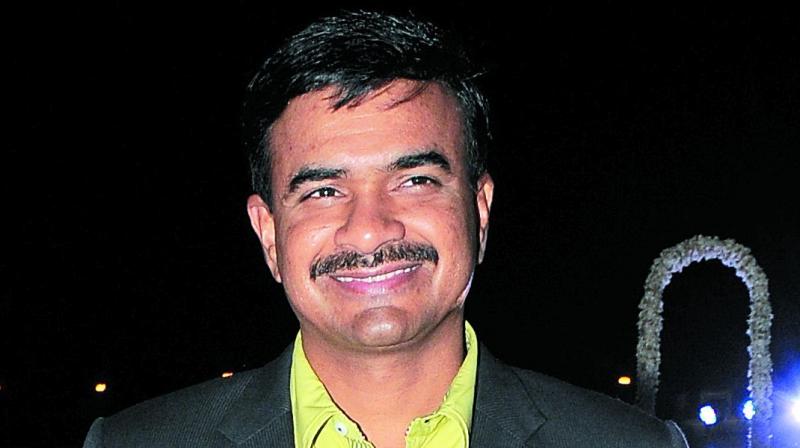Telangana: Loopholes identified, being plugged, says Civil Supplies Commissioner

Hyderabad: Several loopholes need to be plugged in the subsidised rice scheme, including issuance of new ration cards that has been pending for the last three years.
The Civil Supplies department had identified several grey areas in the whole public distribution system.The most important of these is the identification of eligible beneficiaries. Of the total 3.5 crore population of Telangana state, around 2.75 crore (nearly 80 per cent of the total population) are eligible to draw six kg of rice per month at the rate of Rs 1-per-kg.
This is far ahead of the National Food Security Act, that came into existence in 2013 in the UPA-2 regime and which was aimed at covering two-thirds of the population of the country.
To get the ration card to avail of the subsidised food stuffs, the persons or head of the family has to apply to the local MRO who will check the facts and issue the card.
A person whose annual income is below Rs 2.5 lakh a year is eligible for the ration card and food subsidy. The corruption comes in when due to political pressure or greed, Revenue department officials liberally sanction ration cards, bypassing all the eligibility criteria.
There are also cases where genuine beneficiaries buy the rice at the subsidised price of Rs 1-a-kg from the ration shop and then sell it back to the ration shop dealer at a higher price of as much as Rs 10 a kg. The ration shop dealer diverts the rice that has come in through these illegal means to hotels, restaurants and poultry farms etc at Rs 15 to Rs 18 per kg.
This is how corruption thrives, defeating the very purpose of the subsidised scheme and committing a fraud on the taxpaying public. According to Civil Supplies commissioner C.V. Anand, it is very difficult to monitor every one of the 86 lakh ration card holders in the state. If a drive to weed out fraudulent cards is held, he says, in one or two places politicians will take up agitations against them.
The government raises taxes from the public and is responsible for the judicious expenditure of the same and is accountable when subsidies are misused in this manner.
There are ways of checking this misuse. In GHMC limit alone, when the TRS government introduced a pilot project to plug loopholes by introducing EPOS (Electronic Point of Sale) system at all ration shops, there was a huge saving of Rs 300 crore in just 12 months. If this is applied to the entire state, covering all the 17,000-odd ration shops, the savings would be over Rs 1,000 crore.
Prior to the introduction of EPOS in February, 2016, the monthly allotment of rice to 1,545 ration shops in GHMC was 27,253 metric tonnes (MT) and monthly savings due to non-lifting and closing balance at the ration shop was 2398 MT (8.8 per cent). But after the introduction of EPOS, between March 2016 and April 2017, the allotment was 25, 748 MT and the saving was 5,150 MT taking it to 20 per cent. Thus Rs 300 crore was saved.
In areas outside the GHMC, the monthly allotment of rice was 1,49,761 MT and saving due to non-lifting and closing balance at ration shops was just 832 MT, which amounts to 0.55 per cent. The state Civil Supplies department expects that if EPOS is extended to each and every shop in these areas too, it would save 22,464 MT every month (15 per cent) which would save Rs 700 crore per annum.

